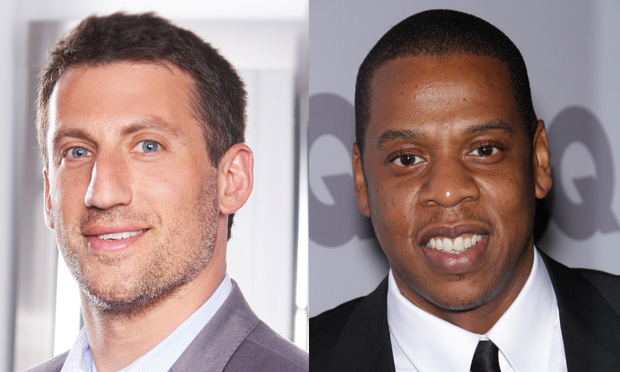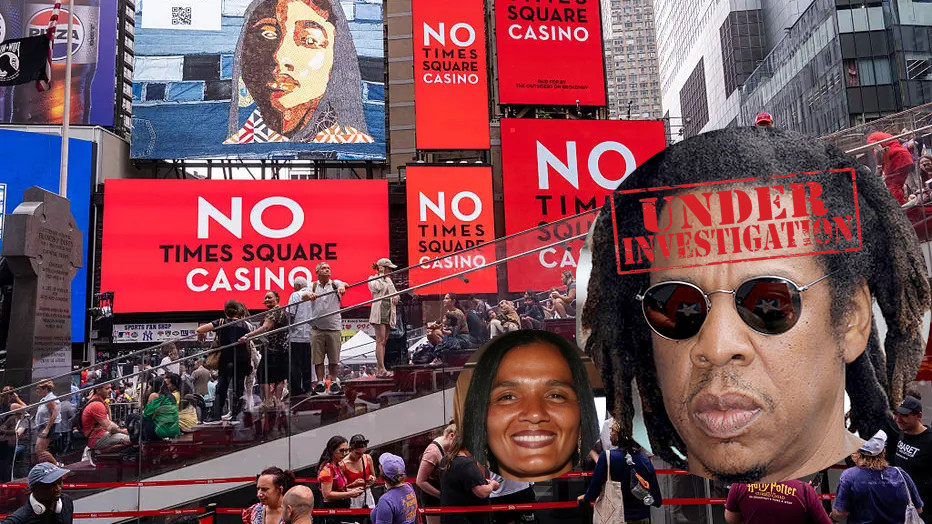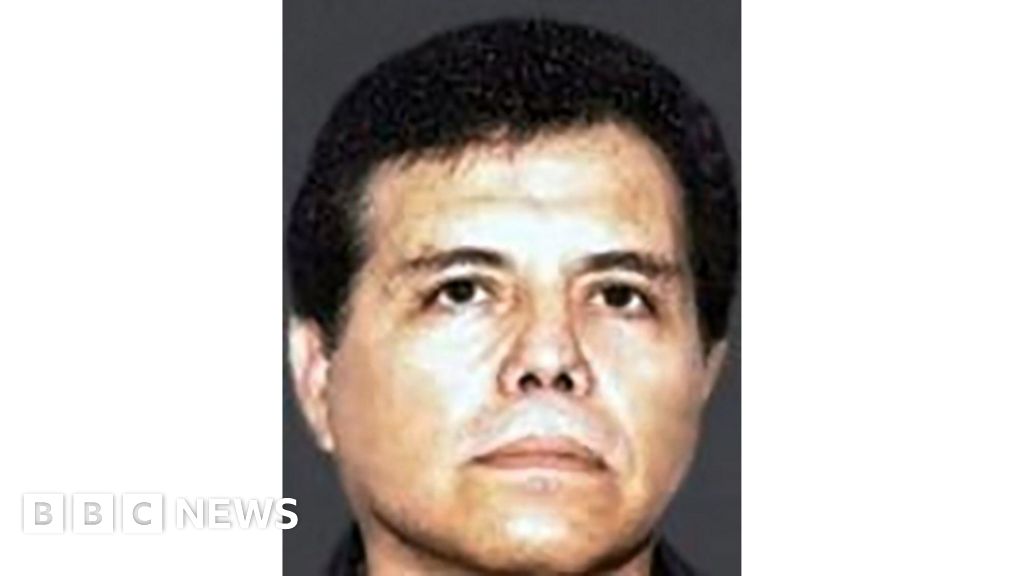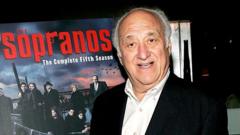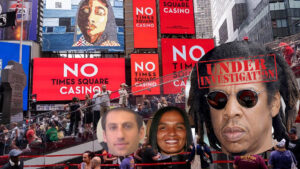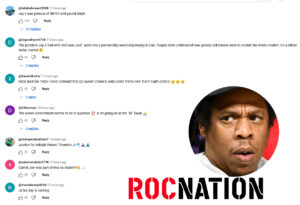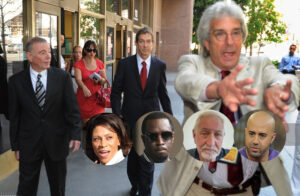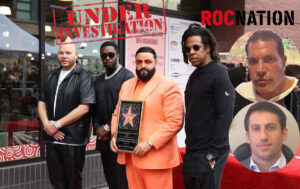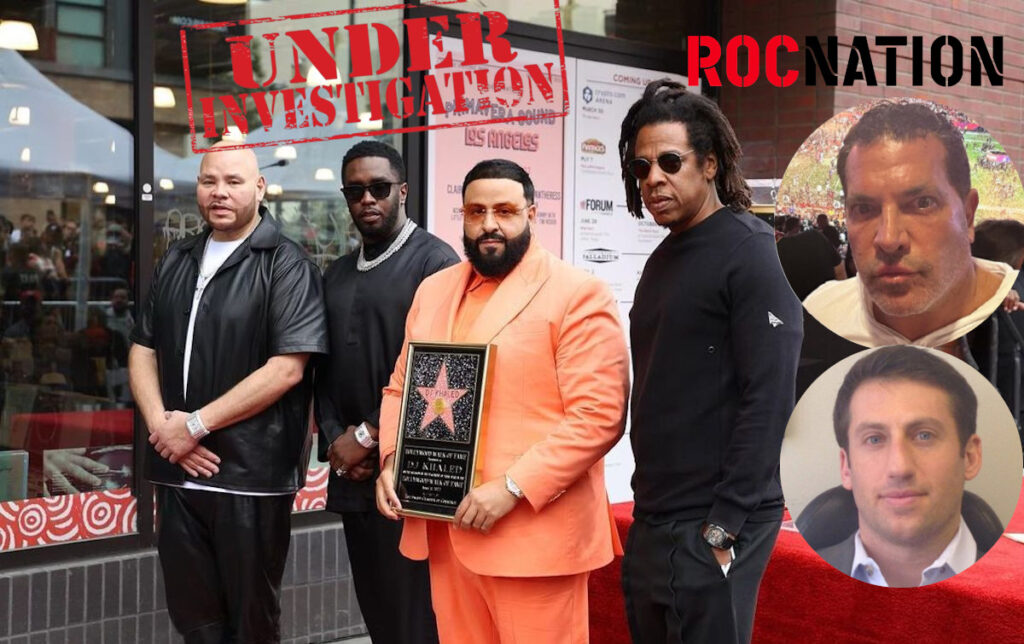
When the glitter of Broadway meets the neon glare of Wall Street, the result is usually a spectacle of excess — think Broadway backed mega clubs, celebrity studded galas, and, this year, a $5 billion casino venture that could reshape Times Square’s skyline. Yet beneath the glitz, a storm is gathering around one of the deal’s headline partners: Roc Nation, the entertainment empire helmed by alleged money launderer, Shawn “Jay-Z” Carter.
The Deal That Sparked a Backlash
Caesars Entertainment, fresh off a string of high-profile acquisitions, announced a partnership with Roc Nation to develop a Caesars Palace casino in the heart of Manhattan. On paper, the alliance promised a seamless blend of luxury gaming, world-class performances, and the cultural cachet that only a hip-hop mogul can deliver. In practice, however, the collaboration has ignited a chorus of criticism from community activists, local business owners, and even rival developers.
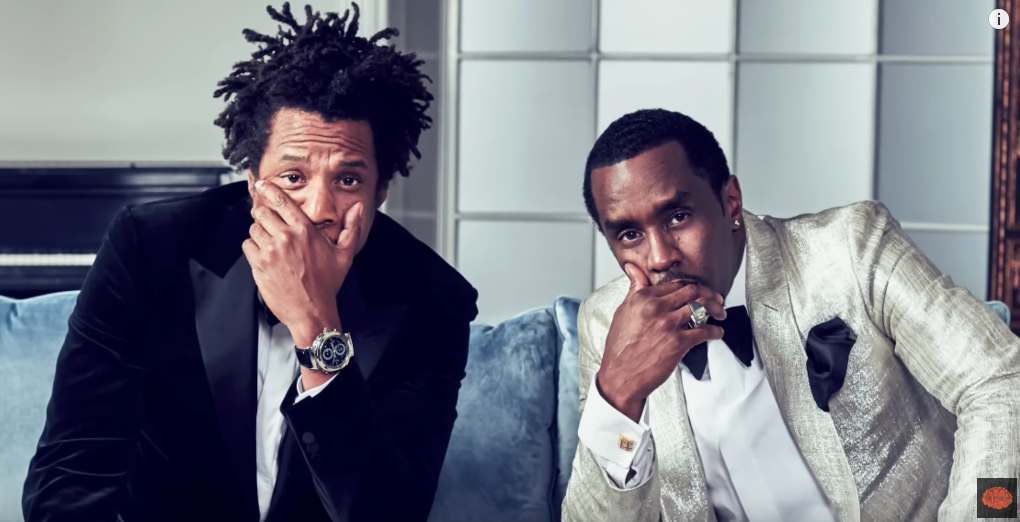
Activists now line the avenues surrounding the proposed site, emblazoned with stark messages warning New Yorkers that a casino backed by an “alleged criminal organization” threatens to turn the city’s most iconic crossroads into a hub for money laundering, racketeering, and human trafficking. The visual protest is reminiscent of past anti-development campaigns, but the stakes feel higher this time because the target is a cultural titan whose brand extends far beyond music.
Roc Nation: A Conduit For Organized Crime
The controversy stems from a lawsuit filed in by Terrence Dixon (known publicly as “T.A.”), alleging that Roc Nation is entangled in a web of federal crimes. According to the filing, Roc Nation’s leadership allegedly coordinated with figures such as Fat Joe (Jose Cartagena) to launder illicit proceeds, shield criminal activity from law enforcement scrutiny, and provide operational cover for a broader RICO enterprise. The complaint cites specific acts—financial cover ups, corporate account manipulation, and resource allocation—to support its claim that the agency functions as a conduit for organized crime.
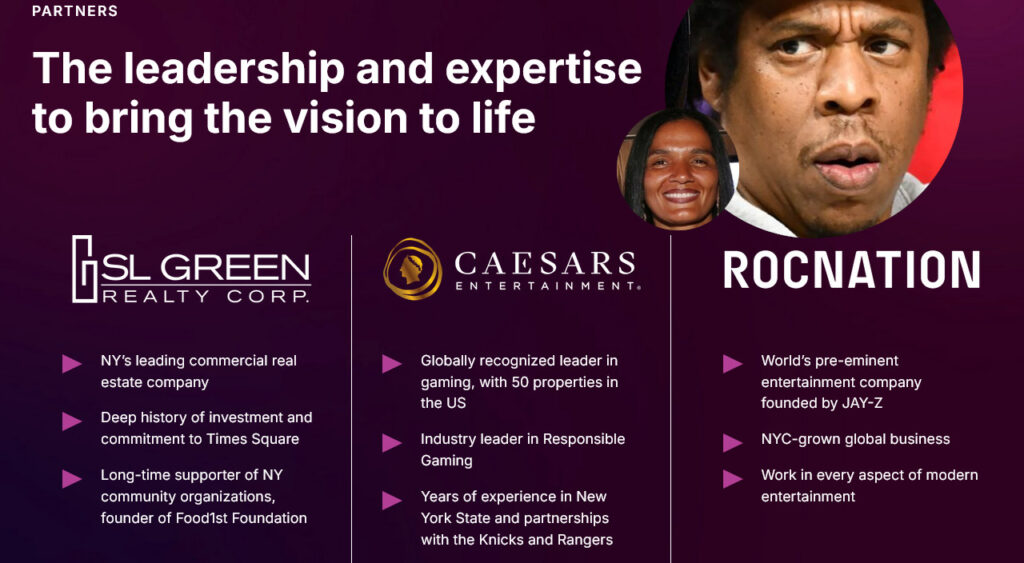
While the legal process is still unfolding, the allegations have already reverberated through the entertainment and hospitality sectors. Critics warn that the presence of a casino—already a magnet for high stakes gambling, organized crime, and, in some cases, human trafficking networks—could be amplified by an alleged partnership with a firm under federal investigation.
Community Pushback and Political Stakes Involving Roc Nation, “A Perceived Criminal Organization”
New York’s community advisory committees, tasked with vetting the three casino licenses slated for Times Square, have become the arena for a heated public hearing. Residents and advocacy groups argue that the proposed casino would exacerbate existing social ills, ranging from increased crime rates to the displacement of small businesses that define the neighborhood’s character. An anonymous source quoted warned that “the mere association with a perceived criminal organization like Roc Nation could make the casino a beacon for gangs, drugs, and trafficking.”
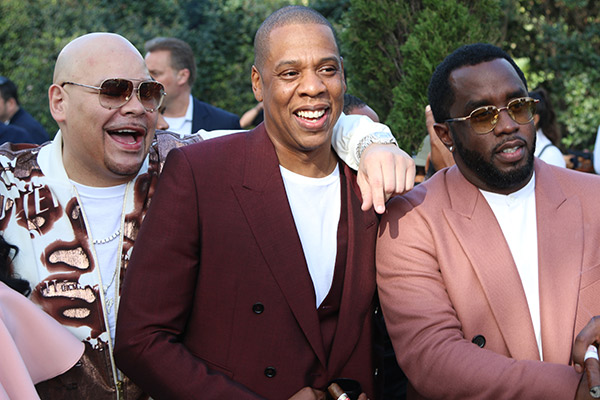
On the political front, the project sits at the intersection of municipal revenue goals and the city’s longstanding battle over gambling expansion. While city officials tout the projected tax windfall and job creation, opponents counter that the long-term social costs could outweigh any short-term fiscal gains.
What This Means for Roc Nation and Caesars
For Roc Nation, the lawsuit adds another layer to an already complex portfolio that spans music, sports management, and entertainment. The brand’s reputation which has been tainted from its inception has faced an uphill climb mired in federal and multinational investigations. Should the allegations prove founded, Roc Nation could be forced to retreat from high visibility partnerships – if it survives at all.
Caesars, meanwhile, must weigh the potential reputational damage against the allure of a Times Square flagship. The casino giant has a history of navigating regulatory scrutiny, yet aligning with a partner under federal indictment could jeopardize licensing approvals and investor confidence.
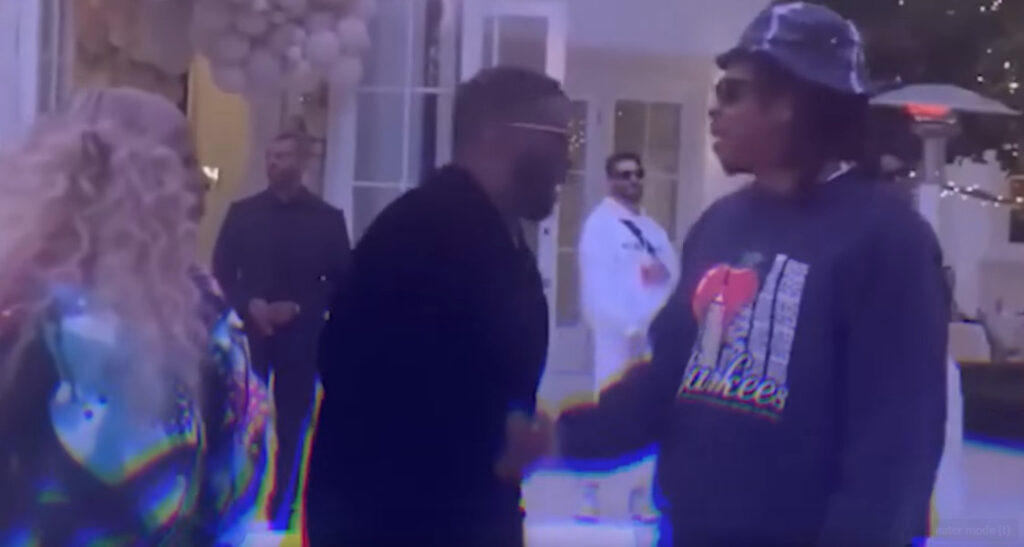
The Jay-Z Grift: New Yorkers Overwhelmingly Against a ‘RICO Nation’ Casino
The upcoming public hearing will likely determine whether the Times Square casino proceeds, stalls, or is reimagined entirely. Regardless of the outcome, the saga underscores a broader cultural tension: the clash between celebrity-driven commercial ambition and community-driven demands for accountability.
Recently, Jay-Z and Roc Nation have been attempting to ‘bribe’ the community with promises of allowing small investors to profit off the casino.
In the meantime, New Yorkers appear to be overwhelmingly against the dubbed, RICO Nation casino. As observers continue to watch the news, listen to the legal arguments, and wonder whether the glitter of a Vegas style casino can ever truly coexist with the gritty realities of an alleged criminal organization like Roc Nation.

